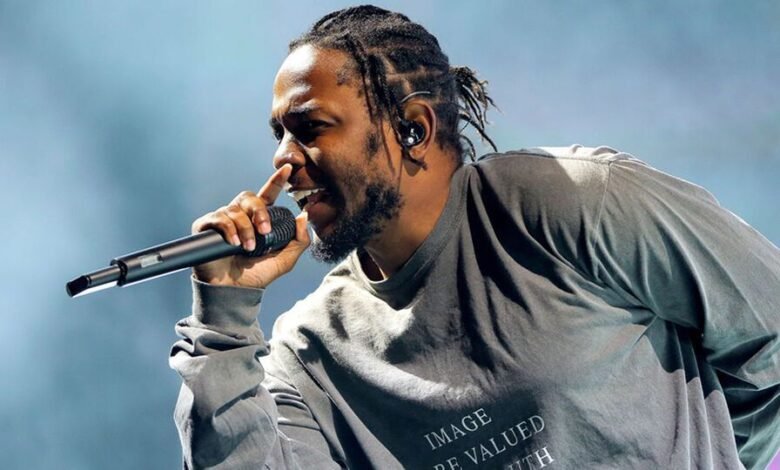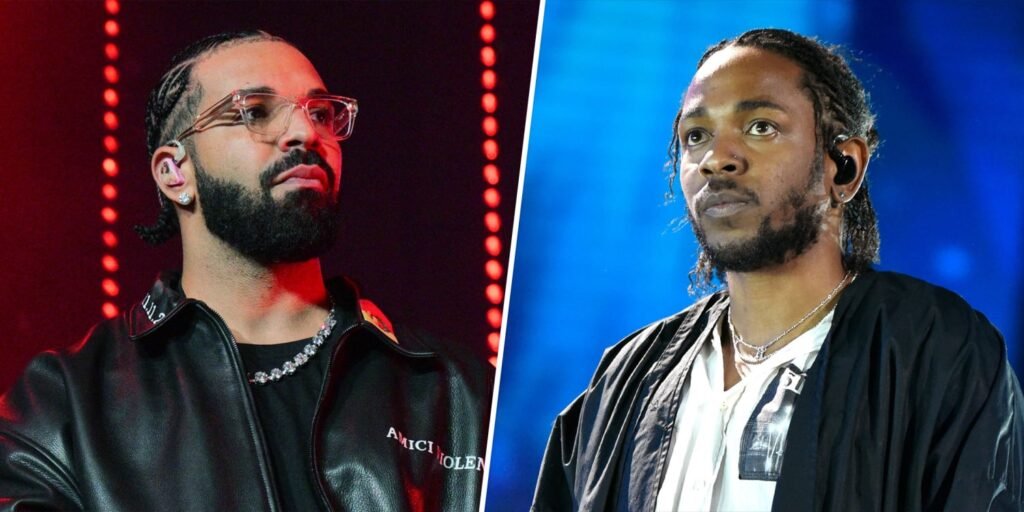The Poetic Genius of Kendrick Lamar’s Music Unveiled

Kendrick Lamar is more than just a hip-hop artist; he’s a storyteller, a poet, and a voice for the voiceless. Since his arrival on the music scene, Lamar has made waves not just with his lyrical prowess but with his ability to articulate the struggles and triumphs of the African American community. This blog post takes a deep dive into the key themes prevalent in Kendrick Lamar’s music, offering insights for music lovers, hip-hop fans, and cultural trendsetters.
The Evolution of Kendrick Lamar
Kendrick Lamar Duckworth, born on June 17, 1987, in Compton, California, grew up in an environment rife with gang violence and systemic oppression. Despite these challenges, he found solace in music, drawing inspiration from iconic rappers such as Tupac Shakur and Dr. Dre. Lamar’s unique blend of raw storytelling and complex lyricism has earned him numerous accolades, including thirteen Grammy Awards and the Pulitzer Prize for Music.
Lamar’s music serves not only as a form of artistic expression but also as a means to spark conversations about critical societal issues. Music lovers and critics alike have lauded his ability to blend personal anecdotes with broader social commentary, making him one of the most influential artists of his generation.
Social Commentary and Political Activism
One of the most striking aspects of Kendrick Lamar’s music is his unflinching social commentary. Tracks like “Alright” and “The Blacker the Berry” address racial injustice, police brutality, and systemic oppression. These songs resonate deeply with listeners, serving as anthems for movements like Black Lives Matter.
Lamar’s commitment to political activism is evident not just in his lyrics but in his actions. During the 2016 Grammys, his electrifying performance of “The Blacker the Berry” and “Alright” highlighted the plight of African Americans, leaving an indelible mark on viewers worldwide. His music compels listeners to confront uncomfortable truths, fostering a sense of urgency for social change.
Personal Struggles and Triumphs
Lamar’s music is also deeply personal, shedding light on his own struggles and triumphs. Songs like “u” and “DUCKWORTH.” offer glimpses into his battles with depression, self-doubt, and the complex relationships within his family. These tracks are raw and unfiltered, providing a stark contrast to the often glorified image of success in hip-hop.
Through his vulnerability, Lamar connects with listeners on a profound level, reminding them that even the most celebrated individuals face internal battles. His willingness to share his personal narrative fosters a sense of relatability, encouraging fans to confront their own struggles and seek resilience.
The Black Experience and Cultural Identity
At the core of Kendrick Lamar’s music is an exploration of the Black experience and cultural identity. Songs like “King Kunta” and “DNA.” celebrate Black pride and resilience, while also addressing the complexities of identity in a society marred by racism and inequality.
Lamar’s exploration of cultural identity extends beyond his lyrics to his music videos, which often incorporate powerful imagery and symbolism. The video for “HUMBLE.” juxtaposes scenes of Lamar dressed as a pope with moments of him in a hair salon, challenging traditional notions of power and beauty. Through these visual narratives, Lamar invites listeners to reflect on their own identities and the societal constructs that shape them.
Spirituality and Faith
Spirituality and faith are recurring themes in Lamar’s music, often intertwined with his reflections on morality and redemption. Songs like “PRIDE.” and “FEAR.” grapple with the human condition, exploring the tension between virtue and vice.
Lamar’s album “DAMN.” is particularly rich in spiritual themes, drawing on biblical references and parables to convey his message. The track “GOD.” reflects his complex relationship with faith, oscillating between moments of doubt and divine revelation. Through his music, Lamar navigates the intricate landscape of spirituality, offering listeners a nuanced perspective on faith and existence.

Section.80
Lamar’s debut studio album, “Section.80,” set the stage for his exploration of societal issues and personal experiences. Tracks like “A.D.H.D.” and “HiiiPoWeR” address the struggles of his generation, from substance abuse to the quest for enlightenment. This album serves as a manifesto for Lamar’s artistic vision, blending introspective lyrics with broader social commentary.
good kid, m.A.A.d city
“good kid, m.A.A.d city” is a cinematic portrayal of Lamar’s upbringing in Compton, capturing the trials and tribulations of his youth. Songs like “Swimming Pools (Drank)” and “m.A.A.d city” offer a gritty depiction of life in the inner city, while tracks like “Sing About Me, I’m Dying of Thirst” reflect on mortality and redemption. This album solidified Lamar’s reputation as a master storyteller, weaving together personal anecdotes with universal themes.
To Pimp a Butterfly
“To Pimp a Butterfly” is a groundbreaking album that melds jazz, funk, and soul influences with incisive social commentary. Tracks like “Alright” and “How Much a Dollar Cost” tackle issues of race, poverty, and self-worth, offering a powerful critique of American society. This album is a testament to Lamar’s ability to push the boundaries of hip-hop, creating a work that is both musically and lyrically innovative.
DAMN.
“DAMN.” is a reflection on the dualities of human nature, exploring themes of fear, pride, and redemption. Songs like “HUMBLE.” and “DNA.” celebrate Lamar’s success while acknowledging the struggles that come with it. This album showcases Lamar’s versatility as an artist, blending introspective lyrics with hard-hitting beats to create a work that resonates with listeners on multiple levels.
The Influence of Kendrick Lamar’s Music on Pop Culture and the Hip-Hop Industry
Kendrick Lamar’s impact on pop culture and the hip-hop industry is undeniable. His music has inspired countless artists, pushing them to elevate their craft and address pressing societal issues. Lamar’s influence extends beyond music, shaping fashion, film, and even political discourse.
Lamar’s collaborations with high-profile artists and brands have further cemented his status as a cultural icon. From his work with Beyoncé on “Freedom” to his collaboration with Nike, Lamar’s reach is vast and multifaceted. His ability to transcend genres and mediums speaks to the universal appeal of his message and artistry.
Conclusion
Kendrick Lamar’s music is a testament to the power of art as a vehicle for social change and personal expression. Through his exploration of themes such as social commentary, personal struggles, cultural identity, and spirituality, Lamar has created a body of work that resonates deeply with listeners and challenges them to think critically about the world around them.
As we look to the future, it is clear that Lamar’s influence will continue to shape the landscape of hip-hop and beyond. His ability to blend raw storytelling with complex lyricism sets him apart as one of the most important voices of our time.
Kendrick Lamar’s music invites us to reflect, to question, and to strive for a better world. Whether you’re a long-time fan or new to his work, there is always something new to discover in his music. Share your favorite Kendrick Lamar songs and themes in the comments below, and join the conversation about the enduring legacy of this remarkable artist.



